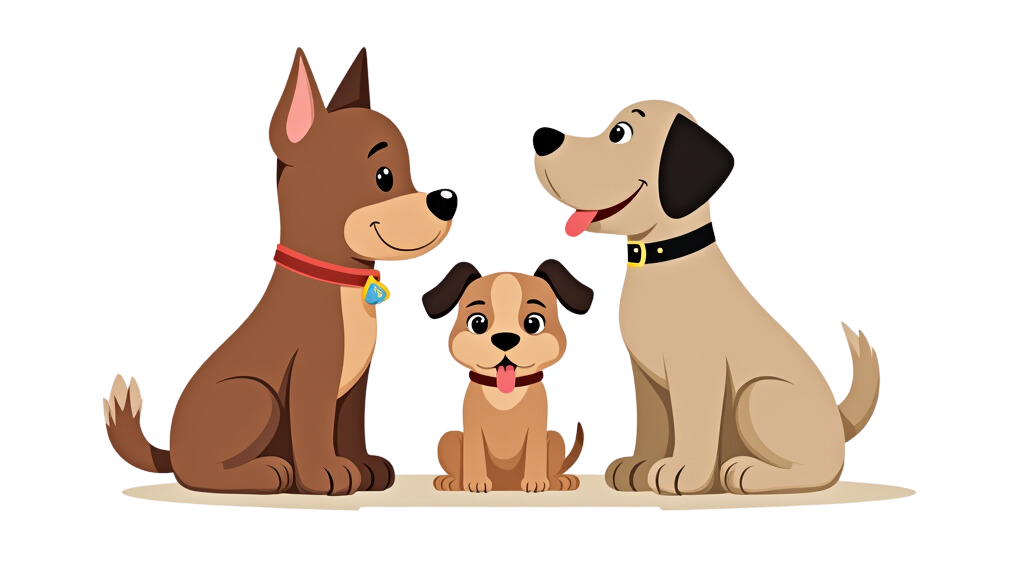I still remember the first time I gave my dog a carrot. Charlie, my mischievous Golden Retriever, was staring at me while I was making a salad. In a moment of curiosity (or maybe guilt for not sharing), I tossed him a small piece of carrot. To my surprise, he crunched it happily and came back for more.
At that moment, I had a thought—are carrots actually good for dogs, or did I just make a terrible mistake? That’s when I went down the research rabbit hole. Now, after years of including carrots in my dog’s diet, I can confidently say: Yes, dogs can eat carrots, and they’re actually one of the best natural treats you can give them! But there’s more to it than just handing over a veggie and calling it a day.
Let’s dive deep into everything you need to know about feeding carrots to your furry friend.
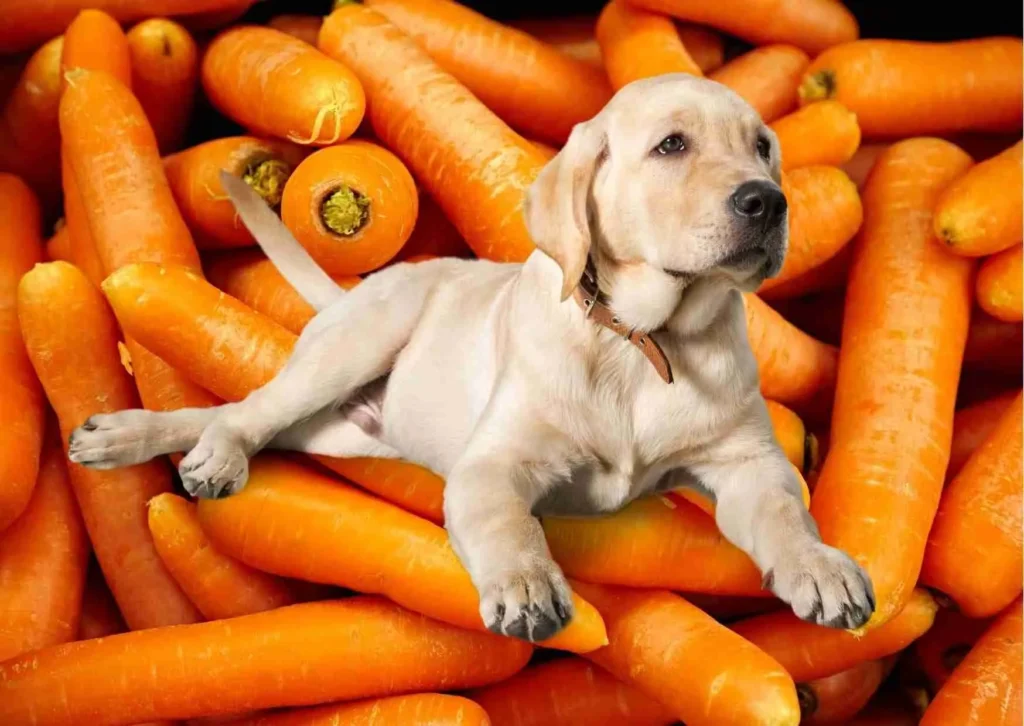
1. Are Carrots Safe for Dogs?
The short answer? Absolutely! Carrots are non-toxic to dogs and can be safely eaten raw, cooked, or even frozen. They’re low in calories, high in fiber, and packed with essential nutrients, making them a fantastic alternative to processed treats.
However, while carrots are generally safe, that doesn’t mean you should let your dog munch on an entire bag of baby carrots in one sitting. Moderation is key, and too many carrots can cause digestive upset (we’ll get into that later).
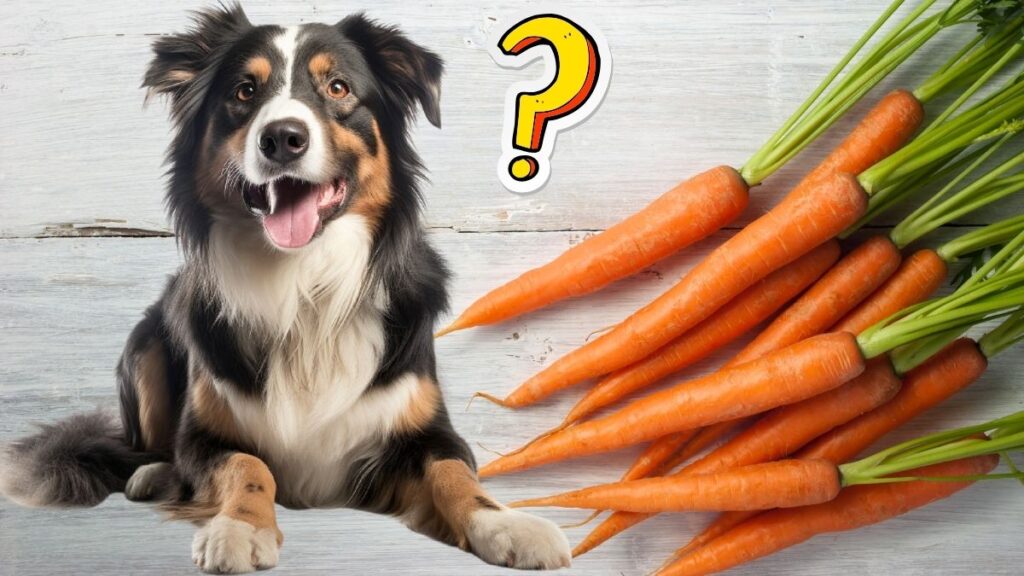
2. The Health Benefits of Carrots for Dogs
Carrots aren’t just a crunchy snack—they’re a powerhouse of nutrition! Here’s why they deserve a spot in your dog’s diet:
A. Loaded with Vitamin A
Carrots are rich in beta-carotene, which converts to vitamin A in your dog’s body. This essential vitamin:
✔️ Supports healthy eyesight and may reduce the risk of night blindness.
✔️ Strengthens the immune system, helping to fight infections.
✔️ Promotes skin and coat health, keeping fur shiny and smooth.
Fun Fact: Puppies, like human babies, need extra vitamin A to support growth and development!
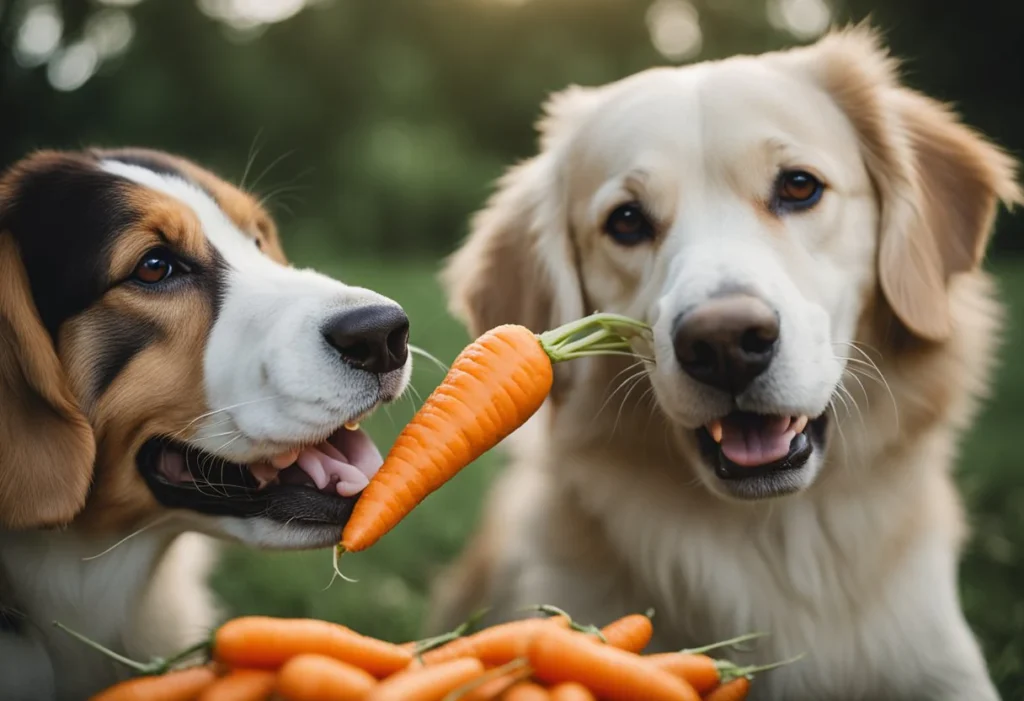
B. Great for Weight Management
If your dog is on a weight-loss plan, carrots are a low-calorie, satisfying treat. Unlike high-fat commercial treats, carrots provide a natural sweetness without unnecessary calories.
C. Supports Dental Health
Raw carrots act like natural toothbrushes for dogs. The crunchy texture helps:
✔️ Scrape away plaque and tartar buildup.
✔️ Strengthen jaw muscles through chewing.
✔️ Freshen breath (though let’s be honest, no vegetable will replace actual dental care).
D. Helps with Digestion
Carrots are high in fiber, which helps keep your dog’s digestive system running smoothly. However, too much fiber can have the opposite effect (we’ll cover that in a bit).
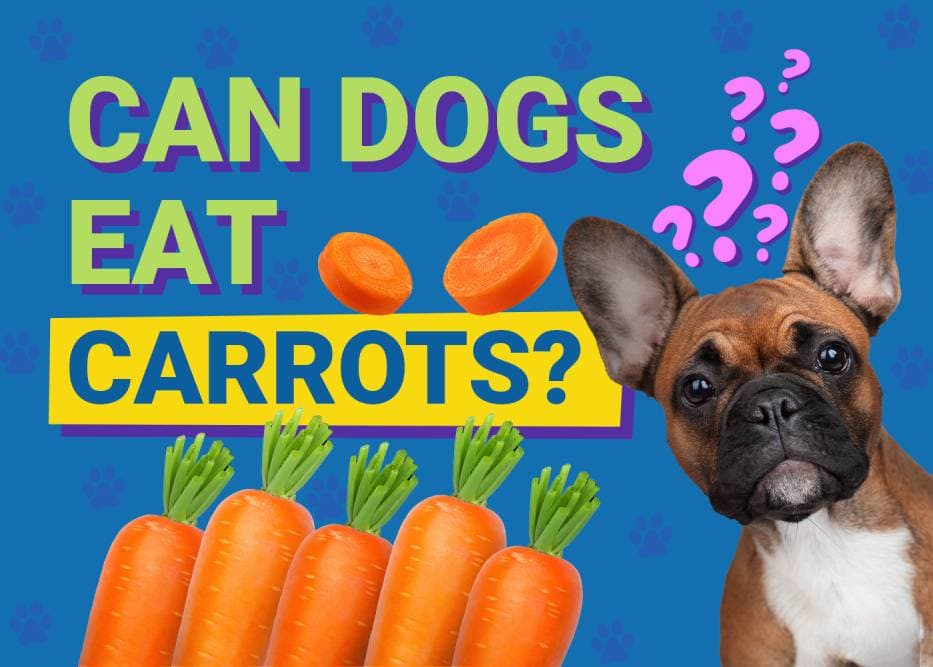
3. How to Safely Feed Carrots to Dogs
Carrots can be served in multiple ways, but it’s important to prepare them correctly depending on your dog’s size and chewing habits.
A. Raw Carrots
The most natural way to serve carrots! But before tossing your dog a whole carrot, remember to:
✔ Wash thoroughly to remove pesticides or dirt.
✔ Cut into bite-sized pieces to prevent choking, especially for small dogs.
B. Cooked Carrots
Steamed or boiled carrots are softer and easier to digest, making them ideal for puppies, senior dogs, or dogs with sensitive teeth. Just make sure:
❌ You don’t add salt, butter, or seasoning—dogs don’t need the extra sodium or fat.
✔ You let them cool down before serving.
C. Frozen Carrots
Frozen carrot sticks make a great cooling treat for hot days and can soothe teething puppies.
Pro Tip: If your dog is a picky eater, try grating carrots into their food for an added nutrient boost!

4. How Many Carrots Can a Dog Eat?
While carrots are healthy, moderation is crucial. Too much carrot consumption can lead to:
❌ Digestive issues, including diarrhea or gas.
❌ An excess of vitamin A, which in very high amounts can be harmful over time.
Recommended Portions by Size:
🐶 Small dogs (under 20 lbs) – 2-3 small slices per day.
🐶 Medium dogs (20-50 lbs) – Half a carrot, chopped.
🐶 Large dogs (50+ lbs) – One whole carrot, chopped.
Golden Rule: Treats (including carrots) should make up no more than 10% of your dog’s daily calorie intake.

5. When Should You Avoid Giving Your Dog Carrots?
Even though carrots are generally safe, there are a few scenarios where they might not be the best choice:
🚫 Dogs with Diabetes – Carrots contain natural sugars, so diabetic dogs should eat them in strict moderation (consult your vet).
🚫 Dogs prone to digestive issues – If your dog has a sensitive stomach, too much fiber from carrots can lead to bloating or loose stools.
🚫 Choking risk for small dogs – Always cut carrots into appropriate sizes to prevent choking.

6. Real-Life Stories: Dogs and Their Carrot Cravings
🐾 Lucy the Rescue Beagle
Lucy’s owner, Jessica, switched to carrots instead of high-calorie biscuits to help Lucy lose weight. Within months, Lucy shed a few pounds while still feeling full and satisfied!
🐾 Cooper the Labrador
Cooper, a dog who chewed everything in sight, was introduced to frozen carrot sticks to redirect his destructive chewing habits. Now, his owners swear by them as a furniture-saving solution!
🐾 Milo the Poodle
Milo wouldn’t touch his food unless it had something extra. His owner found that grating carrots into his kibble made him eat happily without hesitation!

Final Thoughts: Should You Give Your Dog Carrots?
Absolutely! Carrots are one of the best natural, low-calorie treats you can give your dog. They’re packed with nutrients, good for their teeth, and offer a satisfying crunch.
But remember:
✔ Introduce them gradually.
✔ Serve them in appropriate portions.
✔ Monitor your dog for any digestive issues.So, does your dog love carrots? Share your experiences and favorite carrot-based dog treat ideas in the comments below! 🥕🐶

